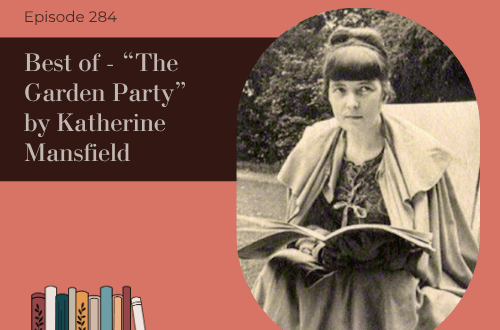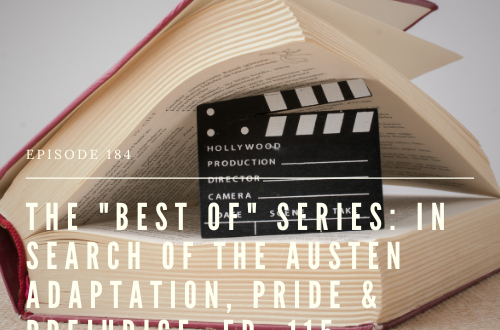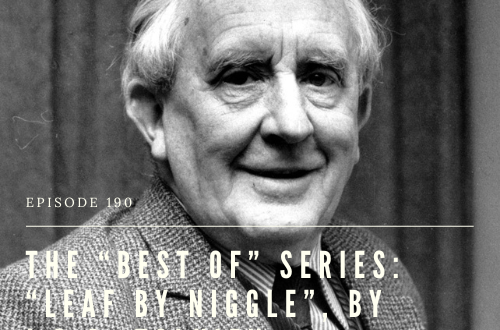
Episode 265: “Best of” Series – An Experiment in Criticism, Ch. 1-4 (Ep. 20)
This week on The Literary Life Podcast, we bring you the first installment of our series reprising C. S. Lewis’ An Experiment in Criticism. Join us over the next few weeks as we replay the original discussions of this book hosted by Angelina Stanford and Cindy Rollins. Then come back for a new episode at the end of the series in which Angelina and Thomas Banks will add some further thoughts and clarity in reply to questions listeners have had over the years.
The seventh annual Literary Life Online Conference is now open for registration. Please visit HouseofHumaneLetters.com to sign up for that as well as all the other upcoming webinars of 2025!
Angelina and Cindy discuss Lewis’ approach to literature and the point of this book being a critique more of readers than of books. Some main ideas they bring out of the first chapter are the importance of rereading, the fact that real readers will carve out time for books, how books have the power to change us, and the way readers can’t help but talk about books. Cindy highlights the connection between Lewis critique of the literati and Mr. Bons in “The Celestial Omnibus.” Angelina talks about the challenge of keeping the love of literature for those whose profession it is to teach it, especially in the modern American university culture.
Our hosts discuss the idea of reading to improve oneself as opposed to submitting to the experience of reading a challenging book. Angelina makes the point that it is about motive and whether or not you are trying to control the outcome. The benefits are the byproducts. From chapter 3, Angelina and Cindy contemplate how we approach art and the need to get ourselves out of the way so that we can enter the work of art. Finally, they cover the five characteristics of the unliterary reader according to Lewis.
Listen to The Literary Life:
Commonplace Quotes:
The history of world literature is weighted heavily on the side of writers who put their masterpieces together without the benefit of two years of graduate school.
Ann Patchett, from The Getaway Car
The mind is its own place, and in itself can make a heaven of hell, a hell of heaven.
John Milton, from Paradise Lost
The Man He Killed
by Thomas Hardy
“Had he and I but met
By some old ancient inn,
We should have sat us down to wet
Right many a nipperkin!
“But ranged as infantry,
And staring face to face,
I shot at him as he at me,
And killed him in his place.
“I shot him dead because —
Because he was my foe,
Just so: my foe of course he was;
That’s clear enough; although
“He thought he’d ‘list, perhaps,
Off-hand like — just as I —
Was out of work — had sold his traps —
No other reason why.
“Yes; quaint and curious war is!
You shoot a fellow down
You’d treat if met where any bar is,
Or help to half-a-crown.”
Books Mentioned:
Amazon Affiliate links follow
Experiment in Criticism by C. S. Lewis
This is the Story of a Happy Marriage by Ann Patchett
Paradise Lost by John Milton
A Preface to Paradise Lost by C. S. Lewis
Bleak House by Charles Dickens
Kristen Lavransdatter by Sigrid Undset
Phantastes by George MacDonald
A Good Man is Hard to Find by Flannery O’Connor
Support The Literary Life:
Become a patron of The Literary Life podcast as part of the “Friends and Fellows Community” on Patreon, and get some amazing bonus content! Thanks for your support!
Connect with Us:
You can find Angelina Stanford and Thomas Banks at HouseofHumaneLetters.com, on Instagram @angelinastanford, and on Facebook at www.facebook.com/ANGStanford/
You can find Cindy Rollins at MorningTimeforMoms.com, over on her podcast The New Mason Jar, and on Facebook at https://www.facebook.com/CindyRollinsWriter. You can also check out her Patreon for additional content.
Follow The Literary Life on Instagram, and jump into our private Facebook group, The Literary Life Discussion Group, and let’s get the book talk going! http://bit.ly/literarylifeFB
Subscribe to The Lit Life:








